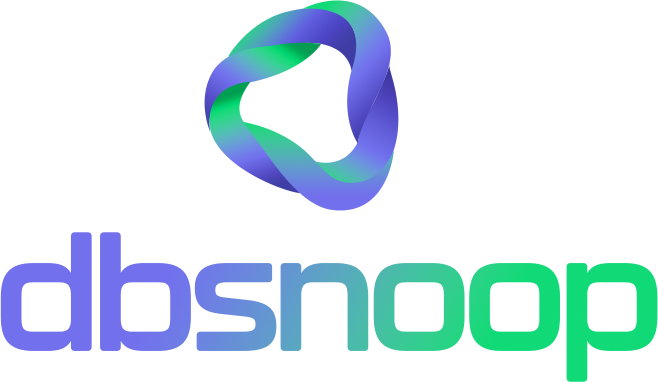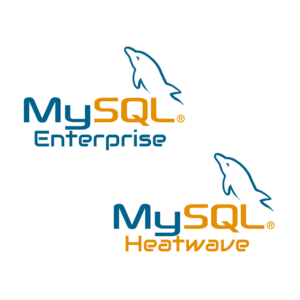I've been working with databases since the 1980's, and I've seen a lot of ugly things and a lot of cool things: Basic MB, Cobol (ISAM), Blis Cobol, Adabas, DB2, Sybase, Dbase (I confess I really liked it), MS -Access (lol), SQL Server, Oracle, OrientDB, MySQL (my eternal passion) and its forks, PostgreSQL, MongoDB, Cassandra, HBase, Neo4J, among other exotic animals.
Many good databases, each one with its own peculiarities. But every time marketing tries to shine a light on the product, strange things happen.
You know those expectations versus reality memes we see all the time on the internet? Sometimes, marketing tries to make a product 100x faster than it really is, and presents it for applications for which it was not intended to.
This introduction is necessary because I will be writing about a database that I love: MySQL. And that marketing often exaggerates.
MySQL HeatWave and MySQL Enterprise are two popular options for cloud database management. While HeatWave promises to accelerate SQL queries on large volumes of data, MySQL Enterprise offers a comprehensive solution for companies seeking stability and advanced database management capabilities. In this article, we will explore the differences between these two options, highlighting advantages, disadvantages and performing a comparative performance analysis.
What is MySQL HeatWave?
MySQL HeatWave is an Oracle Cloud service that provides high-performance query processing power for analytics and business intelligence (BI) workloads running on MySQL Database Service. It uses an in-memory distributed architecture to accelerate SQL queries on large volumes of data, promising low latency and high performance.
What is MySQL Enterprise?
MySQL Enterprise is an advanced version of MySQL, provided by Oracle, that offers additional management, security, and support features. It is designed for companies that require high availability, scalability, and security for their critical workloads.
Cost and Prices
One of the main differences between MySQL HeatWave and MySQL Enterprise is the cost. While MySQL HeatWave is offered as a service on Oracle Cloud, MySQL Enterprise is a paid license that can be deployed in both the cloud and on-premises environments.
MySQL HeatWave is known for being more expensive than MySQL Enterprise, mainly due to the additional fees associated with using Oracle's cloud infrastructure. Additionally, HeatWave's pricing model may include costs based on the use of compute and storage resources.
Advantages and Disadvantages
MySQL HeatWave:
Pros:
- High query processing capacity for data analysis.
- Automatic scaling to handle load spikes.
- Seamless integration with MySQL Database Service on Oracle Cloud.
Cons:
- Higher costs compared to MySQL Enterprise.
- Performance does not always outperform traditional MySQL, especially in specific workloads.
- Resource restrictions and lack of parameterization.
MySQL Enterprise:
Pros:
- Proven stability and long-term support by Oracle.
- Advanced security, management and monitoring features.
- Potentially lower costs, especially for local deployments.
Cons:
- May require more management and configuration effort compared to HeatWave.
- Scalability may be more limited in local environments, depending on available infrastructure.
Performance Analysis
Comparative performance tests between MySQL HeatWave and MySQL Enterprise revealed some interesting findings. On a 1TB testbed, MySQL Enterprise demonstrated up to 3x better performance on many of the queries it ran. This suggests that in certain workloads and scenarios, traditional MySQL can outperform HeatWave in terms of raw performance.
However, it is important to note that performance may vary depending on the specific nature of the queries, the structure of the data, and the system configuration. In some situations, MySQL HeatWave can still provide superior performance, especially when it comes to analytical queries on large datasets.
My Opinion
Although MySQL HeatWave and MySQL Enterprise are two powerful solutions for database management, each has its own advantages and disadvantages. While HeatWave offers high-performance query processing capabilities in the cloud, MySQL Enterprise provides proven stability, advanced management capabilities, and potentially lower costs.
When deciding between these two options, companies must carefully consider their specific needs in terms of performance, cost, security, and scalability. In-depth performance testing and evaluations can be helpful in determining which solution is best suited for a given workload.
Before making a decision, it's essential to consider whether you prioritize avoiding resource limitations and restrictions, maintaining greater control over your database management and data, and the ability to adjust configurations without restarting your database. In such cases, opting for the "classic" MySQL over HeatWave may be preferable.
However, it's wise to conduct a proof of concept (POC) before adopting any new technology. Comparing the current technology with potential alternatives through a POC allows for a thorough evaluation of the scenario, ensuring informed decision-making based on practical experience.
Get to know Heatwave and Enterprise.
For more articles, checkout our blog.

